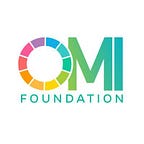#TIL- Wheeling to Inclusive Development
By Aishwarya Agarwal
In 2018, Ford Brazil in partnership with GTB Brazil and Code Studio, redesigned the trunk mat of the Ecosport, their best-selling vehicle for disabled drivers, to give it a new function: a portable ‘Accessibility Mat’. It was designed to help disabled people to negotiate inaccessible streets having footpaths with no kerb cuts or broken and pothole-filled roads. The unique feature of it was the embedded sensor and microprocessor that sends Bluetooth signals to the wheelchair user’s mobile phone and an app with the location of the place it is used.
The ‘Accessibility Mat’ not only provides a temporary solution in accessing streets and cities but an innovative way to map the inaccessible areas of the city by gathering hyper-localised data. That too, collected from the first-hand user experience giving us a greater insight into the needs of disabled people. The databank, thus created, can be used to provide information to the local authorities in identifying the inaccessible places.
With data being one of the most valuable resources required for development, the initiative puts forth that a small smart tool can be akin to a crowd-sourced audit. Although it is just a prototype tested in Brazil, it did turn heads and reinforced a growing trend for greater inclusive and accessible cities.
On the occasion of International Wheelchair Day, let’s take concerted efforts to double down on making our cities more accessible and wheelchair friendly.
